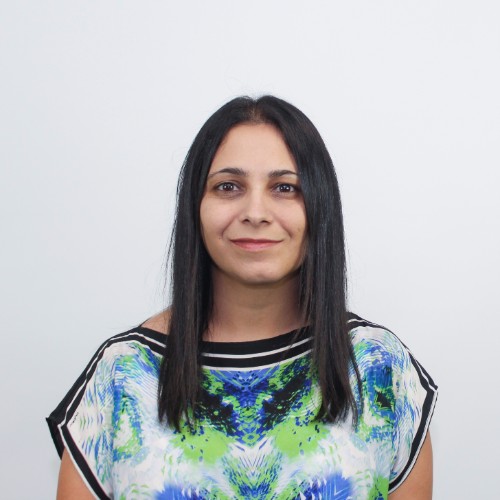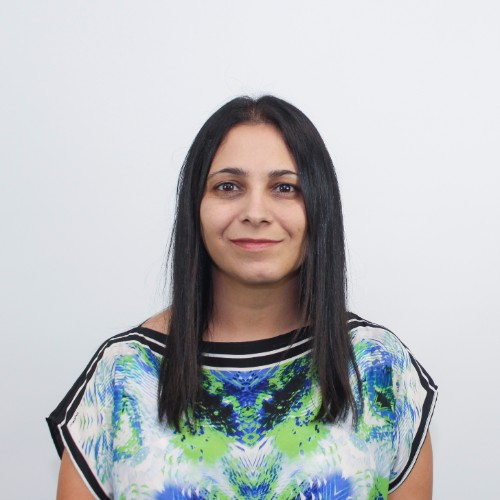

“I find it very useful and really meaningful for our students and educators alike.”
Currently she is busy heading up the team responsible for organising the UNICollaboration conference.
The Conference on virtual exchange will take place next year, on June 4th and 5th, at the Cyprus University of Technology, and it’s entitled ‘Virtual Exchange in a Changing World.’ Would you like to elaborate a little bit on the choice of title, Anna?
“Definitely. Well, the title includes 3 important keywords. These are change, innovation, and inclusion. We are living in a changing world that’s changing technologically, socially, culturally, and environmentally. All this comes with lots of advances – such as the rise of artificial intelligence.
This is something that raises concerns, of course, as there is a lot of radicalisation leading to polarisation and increased conflict as a result.
And in light of these changes, virtual exchange has a role to play in responding to those realities.
Acknowledging that our world is changing means we must also understand that education needs to change alongside.
Therefore, the conference wants to provide a place to acknowledge that virtual exchange must try to stay relevant and engaging – especially when considering all these new realities and educational priorities.
In order for virtual exchange to stay relevant and engaging for students and educators, we must innovate. And that’s where the word ‘innovation’ comes in.
Exploring new models of virtual exchange and new formats using new tools in order to create opportunities for meaningful interaction and collaboration is an absolute priority.
But of course, innovation alone is not enough. As we innovate, issues of equity should be at the forefront. With this in mind, we need to create those opportunities that will be accessible to all, meaning that they will be equitable and truly global.
That is how we selected the title and the three keywords in the title reflect the changes in education and in new directions in virtual exchange.
Why was your university particularly interested in hosting such a conference? Do you have a lot of support within your Institution for this pedagogy, for example?
“Well, internationalisation and an extroverted approach is one of our university’s core strategic goals. So the University strives for intercultural collaboration and offering international experiences to our students and staff.
The Cyprus University of Technology is a member of the European University of Technology Alliance, EUT Alliance. Which is a partnership of 9 European institutions working towards building a sustainable, multilingual, multicultural, innovative university of the future.
Therefore virtual exchange reflects all those efforts of the University in achieving internationalisation and intercultural collaboration.
And the University has excellent premises and infrastructure to host international events.
Furthermore, we have a team of academics who are dedicated to contributing to the Conference organisation with colleagues here at the language centre.
Many are active in research, and some of them in the area of virtual exchange, telecollaboration, technology, enhanced learning. Therefore, we’re happy to team up with a group from UNICollaboration, and together try to offer the best experience to our participants.
I have to say that the University and Limassol in general offers a vibrant setting for participants.
Moreover, Cyprus is strategically, geographically placed at the crossroads of three continents: Europe, Africa, and Asia – which symbolically reflects intercultural collaboration and global learning.
Yes, it really does, isn’t it? That’s a very good point. So, Anna during the conference the call for papers has opened. What are some of the themes you are hoping to cover during this event?
“Yes, the call for papers just opened, and we are happy to accept submissions. We have announced a list of topics and we will try to offer a venue for all models of virtual exchange. That includes tele-collaboration, coil and tandems.
We invite topics related to innovative models and best practices in designing virtual exchange projects – such as issues of equity, accessibility and inclusion in virtual exchange initiatives.
The role of advancing internationalisation at home. We welcome proposals integrating emerging technologies in virtual exchange initiatives such as artificial intelligence, virtual reality augmented reality. Also, do send abstracts related to virtual exchange as a response to global crises: conflict and isolation that are reflecting the realities of today. These are just a few topics, but the list is unlimited, and our team is happy to receive abstracts pertaining to this and other areas.
The website is also up and running now isn’t it?
“Yes, our website is https://unicollaborationconference2026.org/
Any information can be found there in relation to the different types of submissions and there is also a submission form to add abstracts and authors, names and other relevant details.
The registration, though, will begin closer to the Conference – on the 1st of December.
The deadline for submission of abstracts is the 15th of November, and we will do our best to reply to all applicants by the end of November. This is to ensure so that they have plenty of time to make their plans and any travel arrangements.
Any other advice or information?
I would just like to mention that we are honoured to have two important keynote speakers. One of them is Professor Anthony Liddicoat , who is a professor in applied linguistics at the University of Warwick, and he’s one of the key speakers in language and intercultural issues in education and language, policy and planning.
We are also thrilled to have Professor Laia Canalsfrom the University of Alberta de Catalunia, who is an expert in technology, enhanced language learning. We are sure that they will bring very important insights in how we can take virtual exchange forward in light of the new changes that we see in our world today.”
